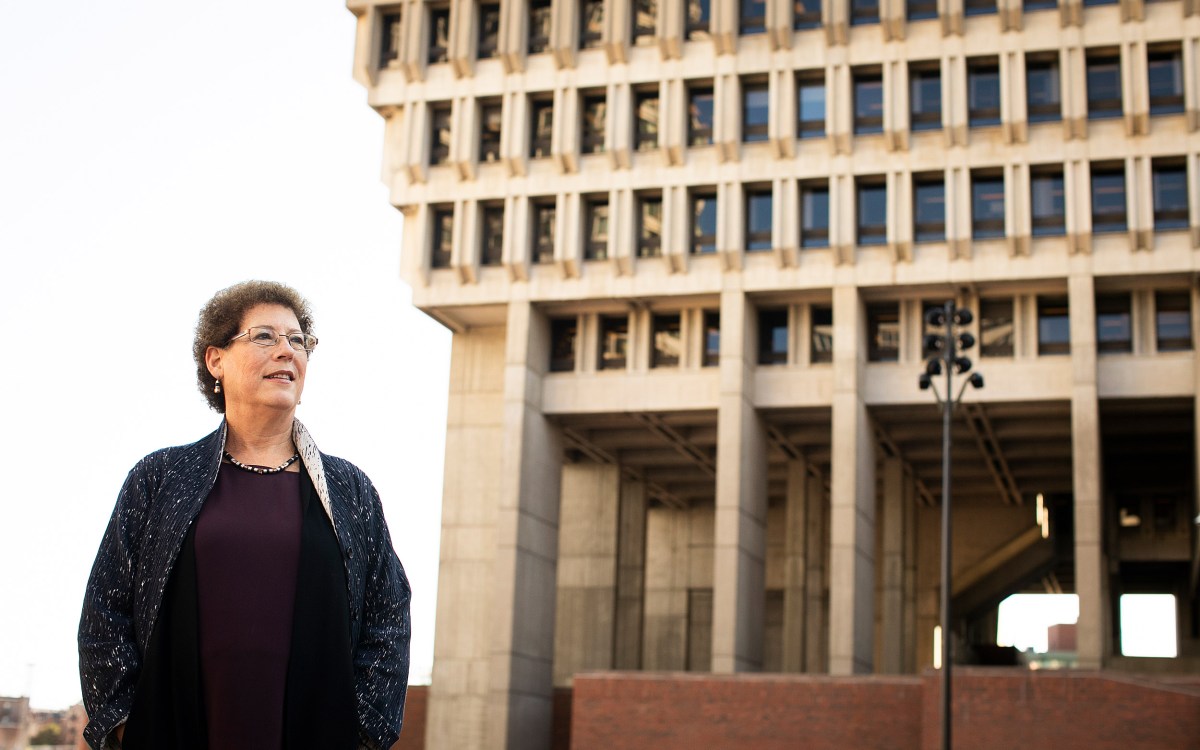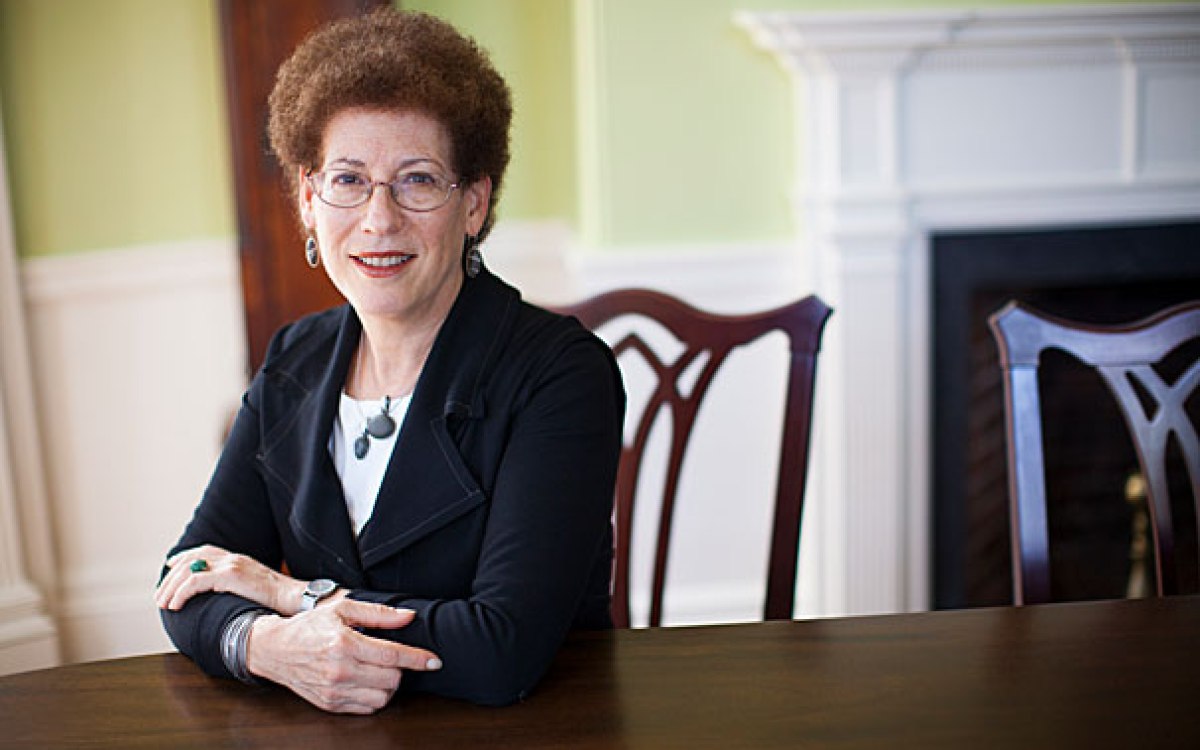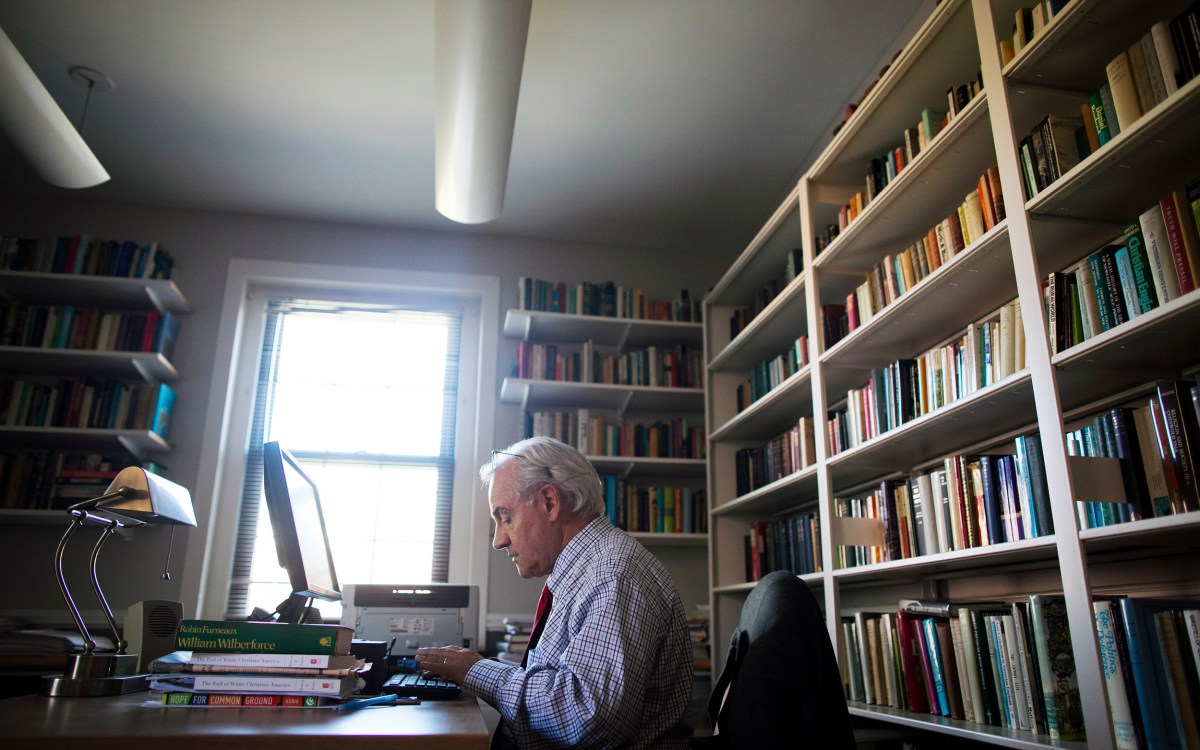Lizabeth Cohen wins Bancroft Prize
Harvard historian honored a second time for book on Ed Logue, leader of urban renewal

Stephanie Mitchell/Harvard file photo
Lizabeth Cohen has done it again. For the second time, the Howard Mumford Jones Professor of American Studies and former dean of the Radcliffe Institute for Advanced Study has won the Bancroft Prize in American history and diplomacy. The 2020 honor is for her book “Saving America’s Cities: Ed Logue and the Struggle to Renew Urban America in the Suburban Age.”
Cohen’s work, published in October by Farrar, Straus and Giroux, probes the life of Yale-educated lawyer Ed Logue, whose career as a city planner helped reshape and revive a number of declining American cities, including Boston, New Haven, and New York, in the decades after World War II.
“With this project I set out not just to examine somebody with power in city building, but to bring the categories of analysis that mattered to social history — class, race, occupation, gender — to understanding a person who had great influence,” Cohen told the Gazette in an interview last year.
“As we face the current COVID-19 pandemic, I think it is more important than ever that Americans recognize that there are some things that government … must do.”
Liz Cohen
Cohen, who devoted nights, weekends, semester breaks, and vacations while Radcliffe dean to writing the new book, said she is thrilled by her second Bancroft win — especially because it means the book’s message “may now get further notice, as it challenges much received wisdom about the impact of the federal government’s involvement in revitalizing cities in the post-World War II period.”
“Although I don’t in any way whitewash the mistakes made in the heyday of urban renewal, I try to show that strategies evolved over time and that there were some progressive goals and achievements, such as a commitment on the part of someone like Ed Logue to creating mixed-income and mixed-race communities and to subsidizing the construction of affordable housing,” Cohen said. “As we face the current COVID-19 pandemic, I think it is more important than ever that Americans recognize that there are some things that government, particularly at the federal level, must do, and that it is not sufficient to leave the solution of major social problems only to the private sector.”
Bancroft winners are judged by the “scope, significance, depth of research, and richness of interpretation they present in the areas of American history and diplomacy,” according to a statement by Columbia University, which administers the prize. Cohen’s book, honored along with “Illusions of Emancipation: The Pursuit of Freedom and Equality in the Twilight of Slavery,” by Joseph P. Reidy, was chosen from 200 submitted for consideration.
“Cohen provides a nuanced view of federally funded urban redevelopment and of one of its major practitioners that goes beyond the simplicity of good and bad, heroes and villains,” the Columbia statement read.
Cohen’s book “Making a New Deal: Industrial Workers in Chicago, 1919‒1939” won the Bancroft Prize in 1991, and was finalist for a Pulitzer Prize.







